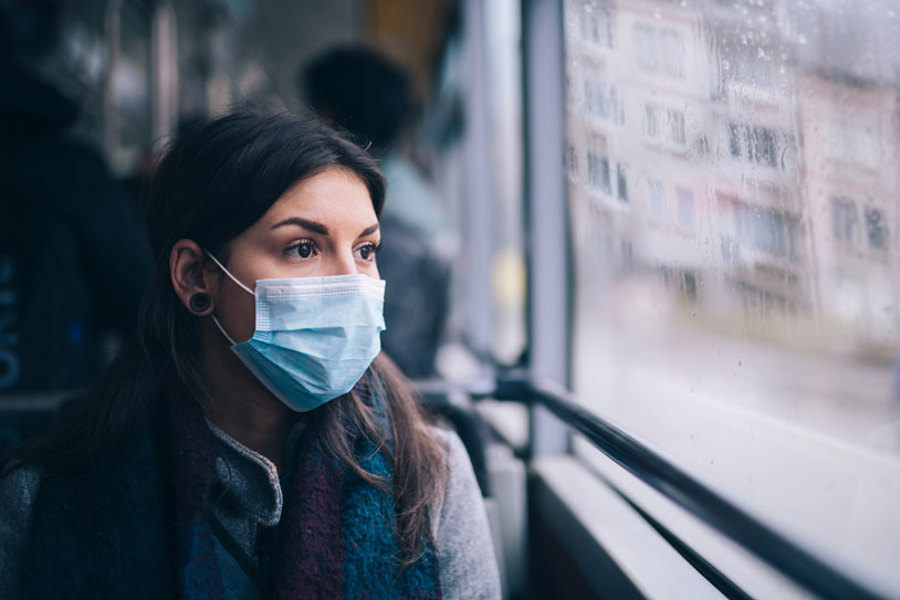
As the lockdown begins to ease, the transition back to normality brings its own set of challenges. We consider the impact of the pandemic on mental and emotional wellbeing, and why this will be a vital consideration as we move back to in-person events.
We are living through a transitional time. The coronavirus lockdown has changed the way we plan, live and think about our lives. Even our lexicon has been altered, with words like ‘social distancing’, ‘PPE’ and ‘self-isolating’ now in daily use. But as much as we’ve all been looking forward to leaving the lockdown behind - the endless Zoom calls, the DIY haircuts, the struggle of virtual work meetings with temperamental WiFi - returning to ‘normal’ can feel like a daunting prospect.
“It’s normal to feel worried about beginning to do things that haven’t been part of our regular routine for some time.”
For many, the lockdown has been a time of unimaginable anxiety. SAMH (Scottish Association for Mental Health) has seen a significant increase in demand for information on anxiety over the period. “The long-term effects of coronavirus and lockdown on mental health are not yet known,” says Carolyn Lochhead, Head of Communications and Public Affairs at SAMH. “But what is clear is that mental health support must be made a priority, to ensure people get help when they need it.”
SAMH provides services including housing support, care at home, employability services, care homes and many other community services, with almost all of these services remaining operational throughout the lockdown period. In April, the charity launched a mental health and coronavirus information hub, which has had over 40,000 unique visits.
Feelings of trepidation
As the lockdown begins to ease, things that used to feel easy - eating out in a restaurant, going to a museum - can become a highly stressful experience. This may be due to fears of the virus, but may also be a result of months spent at home, away from public spaces and from usual social interactions. “Everyone copes with change differently,” says Carolyn. “It’s normal to feel worried about beginning to do things that haven’t been part of our regular routine for some time. It’s important to be kind to yourself and take changes to your new routine slowly. It can help to speak to people you trust about how you’re feeling or even make the changes together for moral support.”
At the EICC, we recognise that the events industry has a responsibility to make staff and attendees feel safe, secure and confident as we transition back to in-person events. The EICC has always maintained the highest possible level of safety and hygiene precautions, and in these changeable times, these measures are being constantly reviewed, updated and adapted. We believe the key to trust is transparency, which is why we want our delegates to understand the precautions being taken to ensure their safety, and to know exactly what they can expect on site. We will work with organisers to ensure events run as smoothly and successfully as possible whilst adhering to the proper guidelines. This may include delegate health declarations via online registrations; assisting in communicating official guidelines to all event participants; staggering arrival times; providing multiple entrances; increasing break times and build times.
“There are many barriers that stop people from talking about their mental health, but talking about the problem is the first step to being able to get help.”
Caring for delegates
There are also steps that event organisers can take to ensure the mental and emotional wellbeing of delegates and attendees. Event Well, the social enterprise which campaigns for better mental health in the events industry, offers useful tools and expertise for event professionals as they navigate the post-COVID world. This includes acknowledging and addressing the impact of the lockdown on workplace mental health; encouraging employees and event attendees to practice self-care; and tips for boosting the mood of yourself and others in these difficult times.
“Right now it may be harder to do the things you usually do to keep us well,” says Carolyn, “but there are things you can do to look after your mental wellbeing during this time. Feeling stressed or anxious is entirely normal, and it is highly likely that many of your co-workers, family and friends will be feeling the same way you are. There are many barriers that stop people from talking about their mental health, but talking about the problem is the first step to being able to get help.”
We at the EICC believe passionately in the unique power of in-person events to inspire, spread knowledge and create meaningful change. That’s why we are making it our mission to get events up and running again, whilst working to ensure the safety, wellbeing and confidence of everybody involved.

Tips for mental wellbeing post-lockdown
- Talk to a trusted person about how you are feeling
- Don’t feel pressured to return to normality if you don’t feel ready
- Focus on the present
- Be kind to yourself - what your feeling is shared by many others